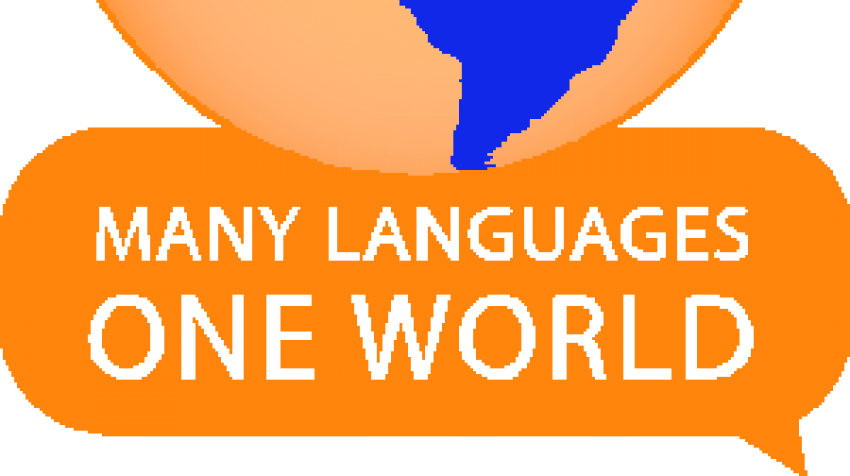Nearly 60 students from around the world gathered at the United Nations General Assembly in New York on 29 July to present their action plans for building a sustainable future through the 2030 Agenda for Sustainable Development. The event was the culmination of the weeklong Many Languages, One World® Global Youth Forum, held at Hofstra University in New York from 25 to 29 July.
The students were winners of the 3rd annual Many Languages, One World international essay contest and they came from 54 universities in 36 countries. Each year the contest is organized by United Nations Academic Impact (UNAI) and ELS Educational Services, Inc., and challenges college and university students around the globe to write an essay examining global citizenship, cultural understanding and the role that multilingualism can play in fostering both. Entrants are required to write essays in one of the six official United Nations languages (Arabic, Chinese, English, French, Russian and Spanish), which can be neither their first language nor their primary language of instruction. More than 9,000 individuals from 165 countries took part in the initial phase of the contest this year.
Nearly two dozen UN staff members across four departments used their language skills, serving as judges for the contest. Jason Pierce was a reader for the English language essays and impressed by the quality of the students' writing: The essays have reaffirmed my belief that multilingualism can help to overcome cultural barriers, serve as a unifying force, and lead to global citizenship.
Students who participated in the contest are pursuing undergraduate, graduate and doctoral degrees. Their fields of study include language and linguistics, medicine, architecture, computer science and technology, business, and sustainable research management.
The Youth Forum is a transformative experience for many of the students, like Amani Naburi from Tanzania: Many Languages, One World is definitely one of the most influential platforms to create change and to inspire a better world. Imagine 60 young and vibrant minds from around the globe, who are aspirants of varied sectors, discussing global issues and coming up with collective solutions. Imagine these minds, trying to be curious about each other's cultures, challenges and opportunities, and craving to identify similar patterns between themselves.
Cristina Gallach, Under Secretary-General for Communications and Public Information at the United Nations, opened the event by underlining the importance of multilingualism in our lives: Communication and continuous dialogue are core tools for peaceful societies, and multilingualism is not only a means we use to share information about the work of the UN, it also reflects our respect for diversity and inclusion that lie at the heart of our work.
The President of the General Assembly, Mogens Lykketoft, echoed these sentiments: Multilingualism and diversity can provide us with different ways to view the world. They can help us to be humble and more tolerant of others. And they can expand the reservoir of ideas and innovation that we need to implement the Sustainable Development Goals.
Ahmed Alhendawi, the Secretary-General's Envoy on Youth, who addressed the students on behalf of Secretary-General Ban Ki-moon, pointed out the students' important role in achieving the 2030 Agenda for Sustainable Development: To realize this bold vision, we need the power, energy and ideas of today's young people, who are part of the largest generation of youth in history.
Mark Harris, President Emeritus of ELS, noted that the number of contest entrants tripled this year, reaching forty more nations than 2015, a sign of the growing importance of multilingualism in a globalized world. Susan Adams, Senior Advisor to the International Association of University Presidents (IAUP), highlighted the collaboration between UNAI, ELS and IAUP in their efforts to promote Global Citizenship education as a means of improving the world.
Learn more about Many Languages, One World and sign up for updates here. If your college or university is interested in becoming a member of United Nations Academic Impact you can enrol here.

